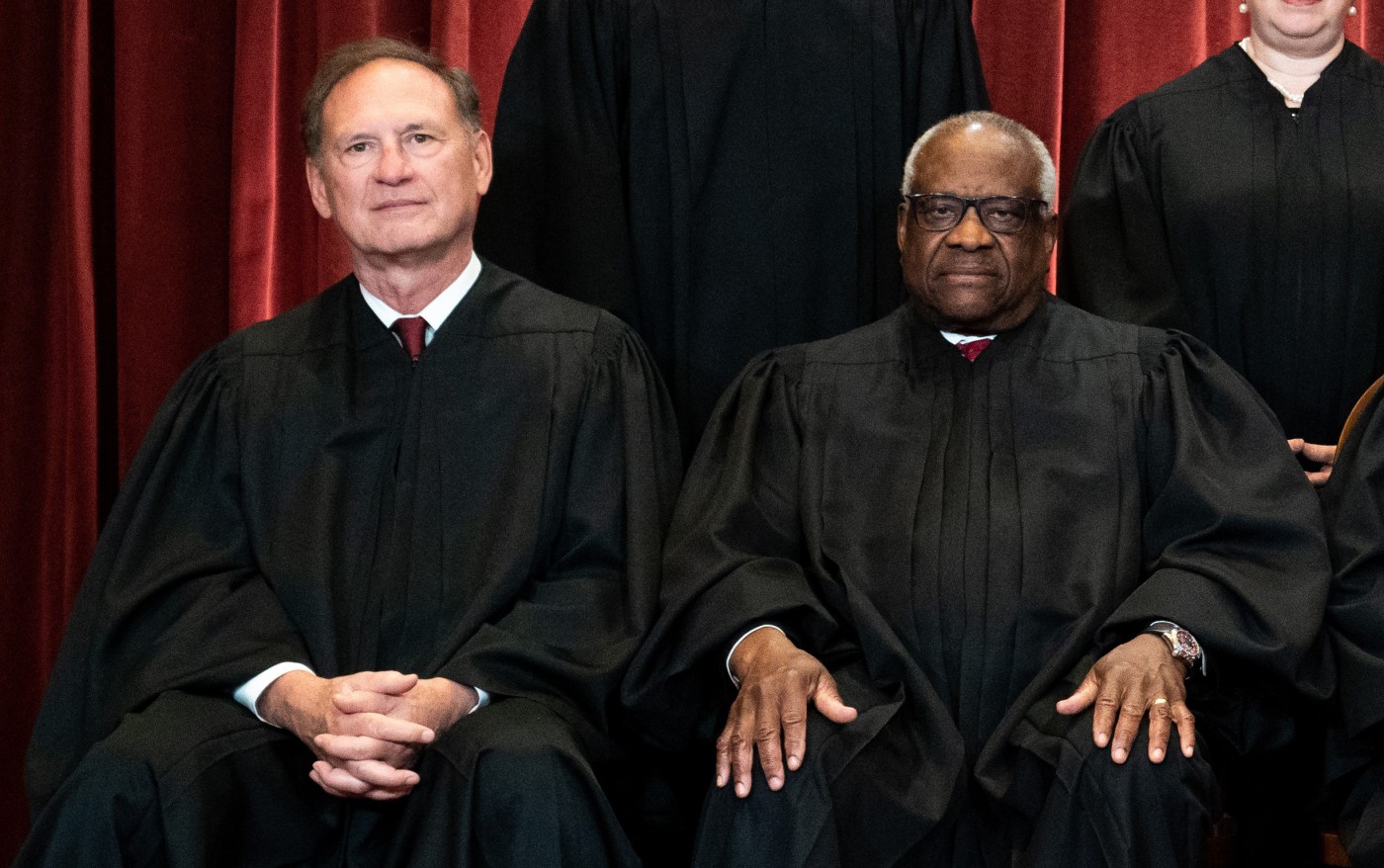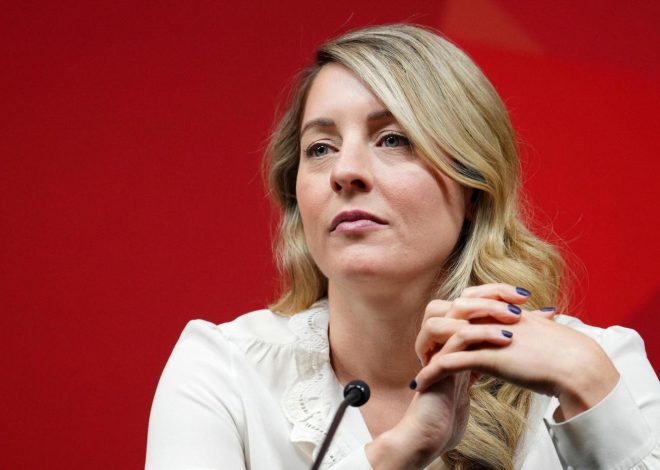
Feldman: A second Trump term would cement a Supreme Court revolution
The 2016 presidential election turned out to be pivotal for the Supreme Court. Donald Trump’s presidency led to his appointment of three justices, the overturning of Roe v. Wade and the launch of a conservative constitutional revolution. Had Hillary Clinton been elected, liberals would have achieved a genuine majority on the court for the first time since the 1960s.
The stakes of the 2024 election may be almost as high. Archconservative Justices Clarence Thomas (age 76) and Samuel Alito (age 74) are likely to retire if Trump is elected and Republicans control the Senate. Trump would then replace them with justices at least as conservative as they are — and decades younger.
That would likely consolidate the court’s conservative majority for at least the next 25 years. That’s because Trump’s first-term appointees — Justices Neil Gorsuch, Brett Kavanaugh and Amy Coney Barrett — are all in their 50s. Those three, plus two more Trump nominees, would make a Trump-appointed majority on the court. For comparison’s sake, no president has appointed a majority of the justices since Franklin Delano Roosevelt, the only president to serve more than two terms.
On the other hand, if Kamala Harris is elected, Democrats can prevent the creation of a durable, Trump-majority court. They can even hold out hope for an eventual reversal of the conservative majority. If a Democratic president (with a Democratic Senate) replaces two conservatives with two liberals, it would have an epochal effect on the court. The 6-3 conservative majority would turn into a 5-4 liberal majority.
A liberal majority might take steps to reverse the conservative revolution. The liberal majority could reverse the Dobbs decision that overturned Roe v. Wade. The right to choose could again be protected by the Constitution. Such a liberal court could also create sanity out of the madness that is the current court’s Second Amendment jurisprudence, paving the way for Congress and the states to pass rational gun laws. A liberal majority could restore the separation of church and state. It could protect voting rights the way the Voting Right Act intended. And it could take the necessary and obvious step of considering statutory purpose, instead of the head-in-the-sand literal reading of statutes that goes under the banner of “textualism.”
All that may sound a bit tenuous, but it’s worth remembering that chance often plays a meaningful role in creating Supreme Court vacancies. Justices may intend to retire when the party that appointed them is in power, but they often don’t get the opportunity.
Consider conservative Justice Antonin Scalia, who died at 79 while Barack Obama was president, or his sometime opera companion, liberal Justice Ruth Bader Ginsburg, who died at the end of Trump’s presidency. The machinations of then-Senate Majority Leader Mitch McConnell — he refused to even allow a vote on Obama’s nominee — gave Trump the opportunity for his first pick as soon as he took office. And Ginsburg’s death allowed Trump to appoint Barrett, essentially guaranteeing that Roe v. Wade would be overturned.
Related Articles
Letters: Fremont mayor | Measure J | Housing crisis | Squandering sacrifice | Disdain for institutions | Overwhelming defeat
Letters: Prop. 4 | Taxpayers’ burden | Children’s future | U.S. first | Tragic legacy | Hope and faith
To fight misinfo, news outlets are putting plans in place to combat false election night stories
‘Firehose’ of election conspiracy theories floods final days of the campaign
Conservatives could win control of Kansas and Nebraska state school boards
The point of these historical examples is not (only) that justices who care about the state of the Supreme Court should be pragmatic about when they retire. Rather, it’s to remind us that the justices are human beings who aren’t always in control of their own fates. Justices get sick. They fall down. They are, in short, subject to all the thousand natural shocks that flesh is heir to.
So we don’t know whether the next president will get to appoint one, two or zero justices. But if he — or she — does, we could be living under that legacy for another three decades.
Noah Feldman is a Bloomberg Opinion columnist and professor of law at Harvard University. ©2024 Bloomberg. Distributed by Tribune Content Agency.


